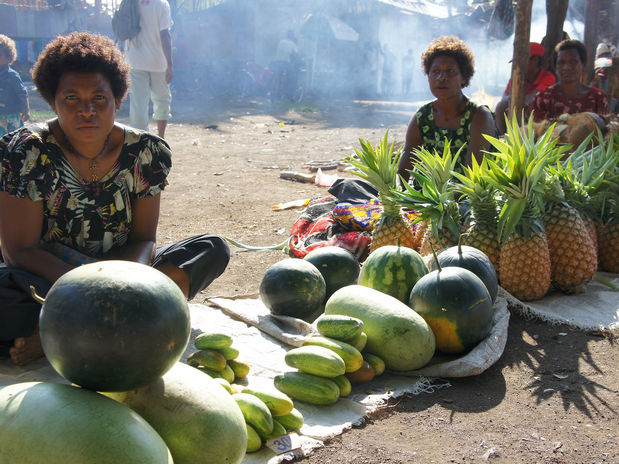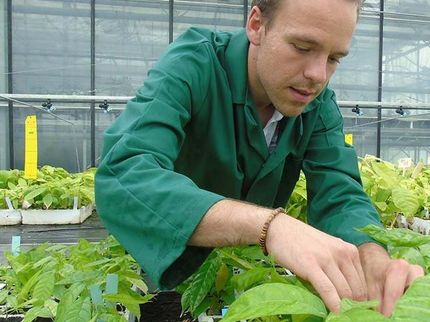Study finds that agricultural diversity has a positive impact on food security
Advertisement
Agricultural diversity can be an important driver of food security, but the magnitude of the contribution depends on the broader socio-economic and biophysical characteristics of the local farming system, according to a recently published paper from researchers including those from the Alliance of Bioversity International and CIAT.

Women selling different produce including watermelons, cucumbers and pineapples in a local market in Papua New Guinea.
Alliance of Bioversity and CIAT / P. Mathur
In their paper, “The benefits and trade-offs of agricultural diversity for food security in low- and middle-income countries: A review of existing knowledge and evidence” published in the journal Global Food Security in June of 2022, the researchers found that in almost two-thirds of all cases, agricultural diversity had a positive effect on food security, but in about one third of the relationships there was no effect of agricultural diversity on food security, or the results were mixed.
According to the Food and Agriculture Organization of the United Nations (FAO), food security exists when all people, at all times, have physical and economic access to sufficient, safe and nutritious food that meets their dietary needs and food preferences for an active and healthy life, whereas agricultural diversity includes the diversity of crop varieties, livestock breeds, fish species and non-domesticated (wild) resources, including the way in which they are processed and consumed.
The literature review conducted by the researchers showed the work that had been done across the Global South or the Lower-Middle-Income (LMIC) countries looking at the link between agricultural diversity and food security and providing a base for other researchers in the field can now use to find collaborators or to think about further research questions.
Katharina Waha, a Senior Research Scientist in the Global Food and Nutrition Security group at CSIRO in Brisbane, Australia and the lead author of the study said that there were 40 indices measuring the different measures and individual relations.
“We looked at all the combinations you could think of and how to quantitatively measure between the food security and diversity indicators,” Waha said, “In terms of negative health outcomes for individuals, all the literature on nutritional and health outcomes would say that not having that diversity or quality is the final outcome.”
The researchers found that although agricultural diversity can be beneficial for food security, it is not the only available strategy to promote food security. Where diversification is also the cheapest strategy in terms of monetary and labor costs, it can be an appealing and effective option to improve agricultural practices and profits.
Elisabetta Gotor is principal scientist and agricultural economist at the Alliance of Bioversity International and CIAT. She has 20 years of experience in economic analyses and evaluation of food system solutions that are at the nexus of agriculture, environment and nutrition, with research focusing on linking biodiversity-based intervention with poverty reduction, food security and nutrition, sustainable rural livelihoods and resilience outcomes. Gotor said that it was important to study the link between the two concepts.
Gotor said that it was important to study the link between the two concepts.
“I have a number of studies where I find the link between agricultural diversity and food security,” Gotor said, “Not only is it the driver, but it's the foundation of everything,”
Gotor said on-farm diversity must be preserved and the way to conserve that is through daily use.
“If you have a diverse system, you can deal with biotic and abiotic stresses, for example, like the impacts of climate change,” Gotor said, adding that genetic diversity is needed to find new crop varieties.
“It's important to understand how we measure diversity and how we assess the other elements of diversity,” Gotor said.
The researchers said holistic study designs considering the natural, social and economic aspects of agricultural and food systems are best suited to represent interactions between them and understand the complex effects of diversification.






























































